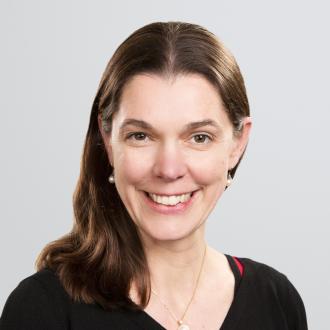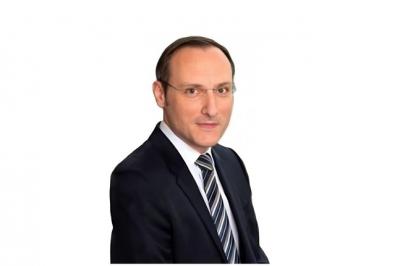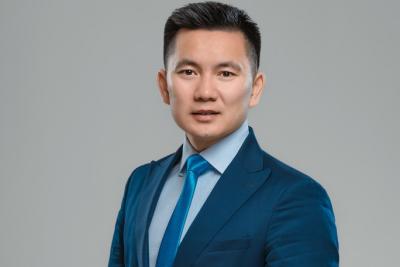Are Bonds Back in Favour in Private Client Portfolios?

Henrietta Pacquement of Allspring Global Investments
Mar 12, 2023
A Hubbis Thought Leadership Discussion Event on February 7 in Singapore Exclusive Co-Host for the Event: Allspring Global Investments
Hubbis and co-host Allspring Global Investments (Allspring) invited a group of private bank, EAM and family office CIOs and gatekeepers to a private and off-the-record discussion event where the topic of the day was whether the series of rate hikes amongst the leading Western central banks since early 2022 had helped restore fixed income to a more prominent role in private client portfolios, or perhaps whether those investors should be stocking up on bonds, and if so, from which regions, in which currencies and at what type of credit ratings.
Leading the discussion was London-based Henrietta Pacquement, Senior Portfolio Manager and Head of Global Fixed Income for Allspring, who not only offered her insights on the world of fixed income but presented some ideas on how climate transition factors into their asset management thought processes and strategies.
These are some of the questions addressed, amongst others:
- Where are the best opportunities in fixed income and credit in 2023?
- What is happening to interest rates and fixed income yields globally, why and what is the outlook?
- Is there a role for fixed income investors in relation to sustainability and stewardship, or is this really the privilege for equity investors?
- Are the G7 central banks now intent on further tightening in the face of the ongoing threat of inflation, or tempering their tough stance in favour of supporting economies and avoiding recessions? And if so, what does that mean for fixed income?
- What should investors be buying in 2023? Developed market sovereign debt? EM sovereign paper? High grade corporate credit? High-Yield? And if so, from which markets/regions?
- What about duration and the yield curve? Is there a sensible trade-off between short-term and longer-dated paper in the fixed income markets?
- Climate change mitigation is top of so many agendas today, so how does this factor into investment decisions around fixed income?
A Word on Henrietta Pacquement
As Senior Portfolio Manager, Head of Global Fixed Income and more recently also Head of Sustainability for Allspring Global Investments, Henrietta Pacquement brings well over two decades of experience of the financial markets and particularly fixed income to the table.
When she completed her masters in Astrophysics at Cambridge in 2000, instead of perhaps joining NASA or the European Space Agency, she chose a career in finance. She qualified first as a CFA, then worked as a consultant, then as a financial engineer, and then a quantitative analyst with Barclays Global Investors until 2006.
Over the next 10 years she then rose the ranks to fixed income portfolio manager, including a 4-year spell at AXA Global Investments, and from 2016 became head of European investment grade credit at Wells Fargo Asset Management, which is now Allspring Global Investments.
A Short Note on Allspring Global Investments
Allspring Global Investments™ is an independent asset management company with more than US$465 billion in assets under management*, offices around the world and investment teams supported by 450 investment professionals. Allspring is committed to thoughtful investing, purposeful planning and inspiring a new era of investing that pursues both financial returns and positive outcomes.
Globally, Allspring has some US$390 billion in fixed income, 59 portfolio managers, 83 analysts, and 16 traders, offers investors 86 fixed income composites & mutual funds, and analyses over 2,250 issuers globally.
Selected Key Insights & Observations from Henrietta at the Event
The discussion event saw a lively flow of ideas and views amongst the guests and from Henrietta Pacquement as the invited speaker. Hubbis has selected a number of Henrietta’s views, as below, to help readers understand key issues and some of her and her team’s views.
2022 - a disastrous year in so many ways, but yields are back!
Henrietta told guests that she agreed with their views that 2022 was a difficult year for investment.
“But the major positive development for fixed income is that yields are back,” she reported. “However, that does not mean investors need to be heroes right now.”
The worst of inflation may be over, but 2% is a distant dream, we are not out of the woods and decision makers will likely remain cautious and defensive. Recession risk has receeded with China’s reopening likely to have a significant impact.
Henrietta believes now is a good time to assess what is happening. Inflation seems to have peaked, energy prices have fallen back somewhat and food prices look like they are at or near their peak as well. However, it should be noted that services inflation is still coming through as wage negotiations continue in many countries.
Though target 2% inflation still seems far away, central banks are now in restrictive territory, and Henrietta expects that we will see a crossover between inflation and short rates to come in the next few months, especially in the US.
Meanwhile, with rates having risen so rapidly, growth will be challenged. “I think we are still to see the real impact of those really sharp and rapid rate hikes, making growth prospects probably rather difficult,” Henrietta said.
Nevertheless, Henrietta is today a little more optimistic than she was in autumn of last year. Actually, the warm European winter had helped significantly, given the crisis in Eastern Europe and its impact on energy supplies and prices. “Remember the TV coverage of the World Economic Forum in Davos – there was clearly no need for them to bring skis this year!” she quipped.
Another major factor Henrietta pointed to is the surprisingly quick reopening of China. “We have quickly raised OECD growth as a result, and we are watching closely to see if this will be inflationary, or deflationary,” she explained. “It will help with supply chains, but it will increase competition for energy, resources and commodities.”
No need to chase yield, especially in a market where short-term investment grade (IG) yields are so appealing. Further out in duration the picture is less clear.
Henrietta explained what she meant by her earlier comment that there is no need to be a hero.
“Rates are up and there is a cushion there we have not had for many, many years,” she said. “But my advice is don’t go yield chasing yet. If you just want some decent income on the short end, there are great levels in dollars in just cash or near cash. And if you want to add in some investment grade credit, then it is not a bad place to be.”
As to the longer view, she said there is more debate. Some might believe that yields are going to stay high, in which case the short end makes sense. For those less confident the elevated yield environment will persist and concerned about re-investment risk, they may want to increase duration exposure, locking in returns for some years ahead.
“Those are the types of conversations we are having with investors,” she said. “Investors largely remain on the more defensive side of the spectrum, perhaps dipping into the upper echelons of high yield if they are really yield hungry, perhaps two-year duration, and fairly high quality at BB with perhaps some B, and ending up with over 7% there, which is a quite chunky cushion for the risk. Personally, I would avoid the bottom end of single B and triple C paper.”
To conclude on her ‘don’t be a hero’ perspective, she said she prefers the higher quality paper, which offers decent yields today. “For example, we are seeing a lot of interest in our investment grade (IG) short duration products, offering a 4% yield in Euros.” And she said if hedged in Dollars, yields look even more attractive.
Dollar paper? Euro-denominated paper? Euro paper hedged in dollars?
Due to current hedging costs, for dollar-based investors looking to invest in the European market there is a meaningful pickup that is likely remain for some time.
European rates in general [on February 7, 2.7% for 12-month German Bunds, 2.8% for French government paper and 3.6 for UK gilts] are unlikely to go anywhere near the rates in the US [4.9% for 12-month US Treasuries]. As a result, “the hedging pick up between EUR denominated and USD denominated debt is likely to persist,” she said. “It might not be as high as it is now [2%] but it is likely to stay attractive for the foreseeable future.
Is 60-40 now a museum piece of an idea? Or is it again becoming more relevant?
The current level of yield in the fixed income market, means that fixed income can begin to play its historic role in portfolios again. This hasn’t been the case until now, but that should change should inflation and yield volatility decline.
Henrietta also responded to further enquiries about inflation, noting that it will take time to get down towards 2%. Inflation will likely be sticky, though a higher level of inflation will have the benefit of aiding the reduction of government debt to GDP profiles.
“But taken all together,” she said, “I think that the central banks will err on the side of caution and stay tighter for longer, fearing another 1970s type scenario.
She also addressed the issue of QT as the replacement today for QE. ”They can dial this up or down at will,” she said, “and I think they are acutely aware that they don’t want detrimental market distortions, especially given the example of the gilt crisis in the UK last year. It exposed the dangers of a government bond liquidity crisis, the impact on sovereign credibility and the ability to issue new paper. Governments across the globe need to issue and refinance large volumes going forward.”
EM paper looks likely to benefit from China’s reopening
Henrietta added that countries around China in Asia are direct beneficiaries of the reopening, in numerous ways, including tourism.
As an aside, Henrietta added that investors she speaks to regularly are increasingly worried about taking China exposure. She said there are many investors who were caught in Russia or Russia-linked exposures and still trapped there. She said although she considers Russia and China as very different, the speed and scale of the crisis around Russia has led many investors to reconsider allocations to China.
This is understandable, she indicated, in light of Russia but also with the ongoing property market crisis in China, irrational exuberance around technology stocks, and the sudden impact of government policy changes in 2021.
Sustainability and climate change are driving more institutional investors and wealth management advisors to measure and then refine their Fixed Income portfolios
Henrietta then turned her attention to her other areas of expertise as Head of Sustainability at Allspring, noting that many more conversations with leading fund managers today, as well as with private banks and wealth managers centre on sustainability and its relationship to fixed income portfolio formation.
“We have a team of 16 now focusing on sustainability, and its impact on asset selection today, and in the future,” she explained. “This has become a major topic in Europe and is already a very politicised topic in the US as energy security and supply chain security have become increasing subjects of concern. We have seen institutional investors adapt their equity holdings in recent years, and we are now seeing more and more effort to adapt in the fixed income space.”
She said more institutions have also signed up to net zero and are working out how they can balance those goals with their financial targets.
“They need to consider risks, returns, but also outcomes of their footprint from an environmental perspective, and in some cases, the social aspects as well. Governance is more of a well-trodden path. But it is the ‘E’ that is really starting to count more in their decision making.”
She explained Allspring has devised a climate transition framework, where they are focusing on leaders from a climate perspective.
“We look at how companies are transitioning their business models over time, how companies are adapting to physical risks driven by climate change,” she reported. “It is a big topic for investors and a great growth opportunity as well. And we take a pragmatic view that change will not happen overnight but progress will occur over decades to come.”
Henrietta added that they are considering all this from a bottom-up perspective to find companies that are leading these charges.
She closed this segment of her comments by noting the significant improvement in the past two or so years in terms of the availability and quality of data, especially around carbon emissions and reduction protocols.
“There is an increasingly robust body of work to assess company carbon footprints and map them to fixed income portfolios.” she said. “For example, you can invest in different entities within a business group that have different activities with wildly different carbon intensity profiles. We are working extensively with our research team and with external providers as well to help map our portfolios to these climate change metrics and issues.”
*Allspring and affiliates. Figures are as of December 31, 2022, unless otherwise noted.

Senior Portfolio Manager and Head of Global Fixed Income at Allspring Global Investments

More from Henrietta Pacquement, Allspring Global Investments
Latest Articles






